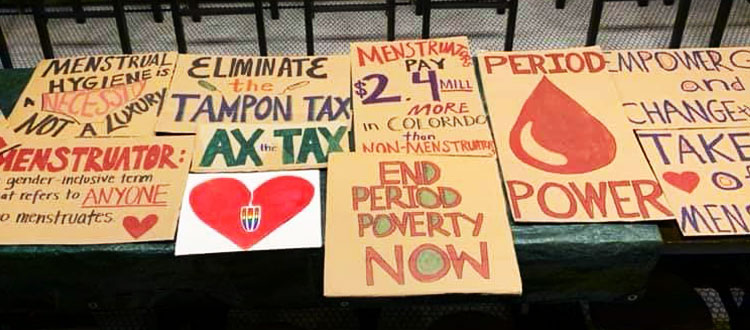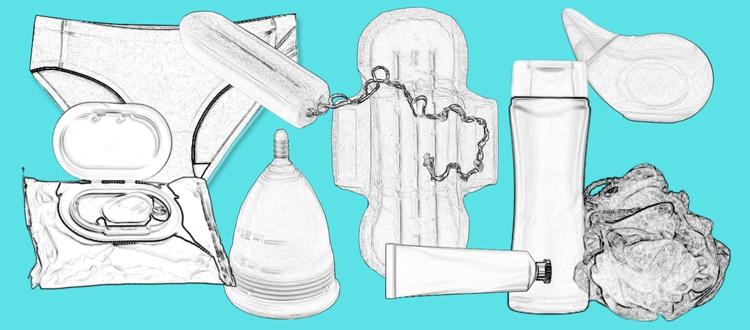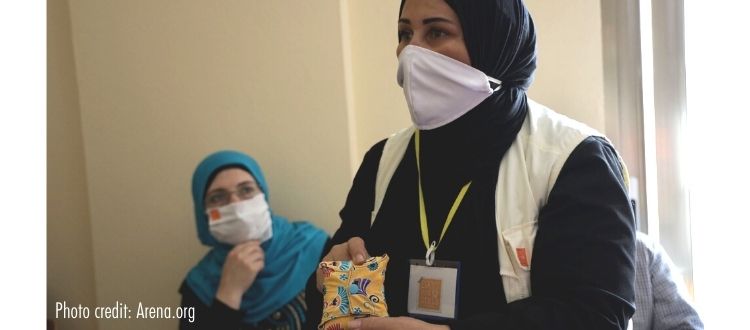PFAS in Menstrual Products
Jamie McConnell Deputy Director What is PFAS and why should I be concerned? Recent testing has detected PFAS (Per- and polyfluoroalkyl substances) in menstrual products... Read More
More Period Policies are Addressing Ingredient Safety and Transparency
Eight pieces of legislation throughout the nation are specifically addressing the safety and disclosure of ingredients used in menstrual products. This signifies that lawmakers are paying more attention to ingredient safety and the right to know what ingredients menstruators are being exposed to!
Umy works to bring menstrual equity conversations into her community to help end period stigma!
Umyeena Bashir is WVE's California Intimate Care Organizing Fellow at WVE and a graduate student at the University of San Francisco studying Organic Chemistry. Umy is passionate about researching period health and educating others on these issues.
New Bill Will Help Close Significant Gaps in Menstrual & Intimate Care Product Safety
Because of lack of government oversight, companies can even get away with not disclosing dangerous chemicals contained in these products. In fact, there is no federal law that requires manufacturers of menstrual care products to disclose any of the ingredients used in these products.
TAKE ACTION for Safer Menstrual and Intimate Care Products!
Recently, the Robin Danielson Menstrual Product and Intimate Care Product Safety Act of 2022 (HR 8724) was introduced in Congress. If passed, the bill requires a research program focused on studying the health risks of fragrance ingredients, pesticides, phthalates, titanium dioxide, and other ingredients used in these products.
The Long-Term Game of Bettering Menstrual Pain
Recent studies have investigated more long-term preventative treatment methods for period pain. One new concept is the application of taking vitamins.
Sixty-Two Menstrual Equity Laws Passed in the United States
The laws include eliminating the menstrual tax, making menstrual products more accessible by requiring them in schools, prisons, correctional facilities and shelters; and addressing the safety of these products by requiring ingredient disclosure.
Schools and Periods: Class is in Session
The hygiene products at public schools are either poorly made or there are none available at all. If you suffer from period cramps, the nurses’ best solution might be to just give you an ice pack and hope you feel better. That is the unfortunate reality we have in our schools today.
How Knowing Your Period, Betters Your Period
To better address period poverty and menstrual hygiene management within the United States, there needs to be more emphasis on menstrual and sexual education to help menstruators prioritize their period and take care of their reproductive health.
The Prevalence of Period Poverty in Refugee Camps
Along with the burdens that both men and women must carry in order to survive whilst in these camps, like food and shelter, many women have an additional strain placed on them –– caring for their periods.











